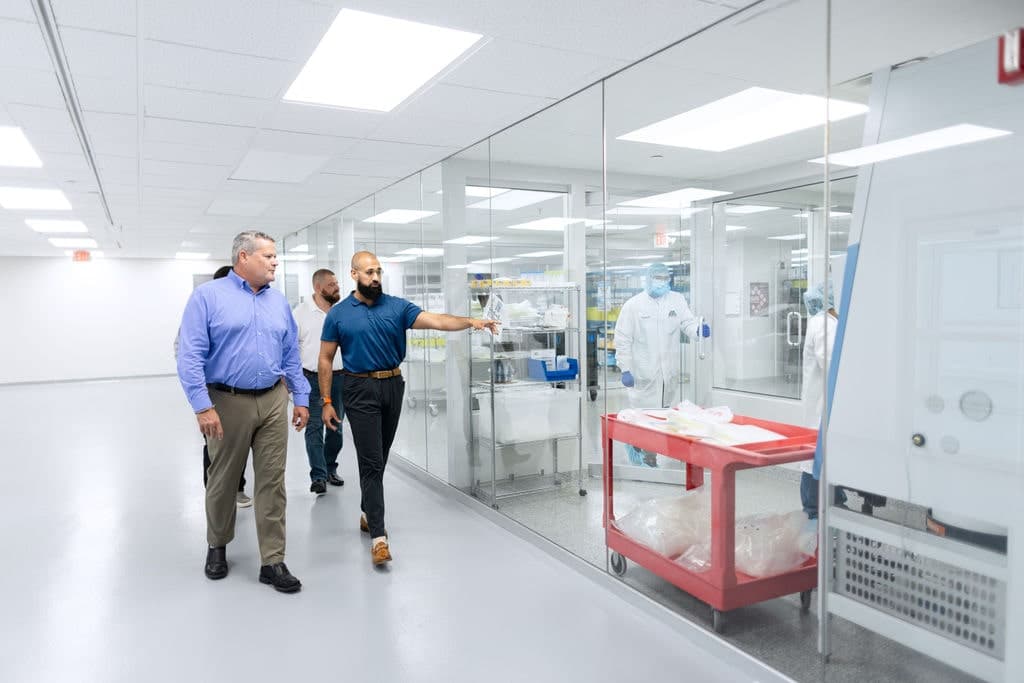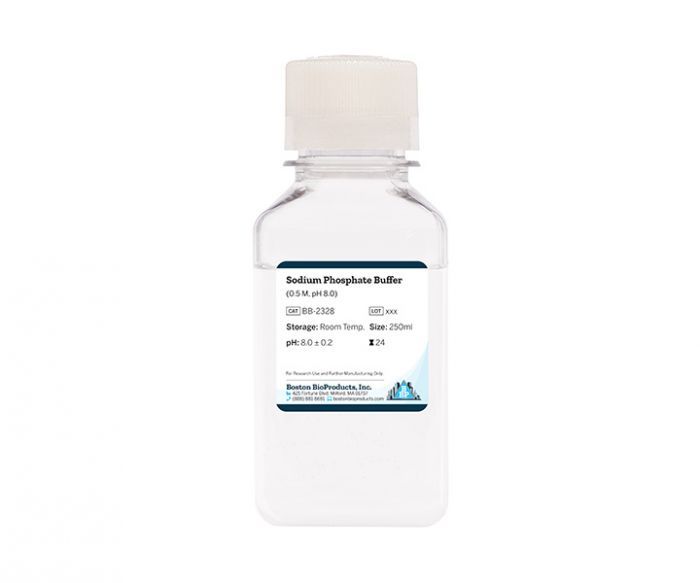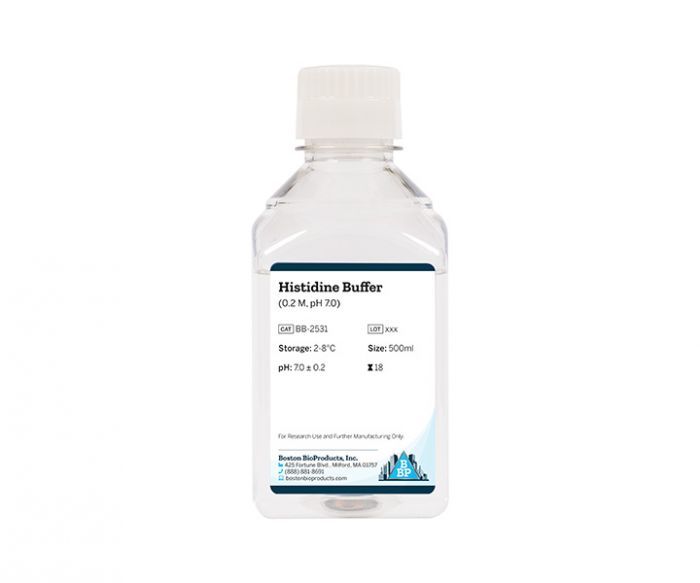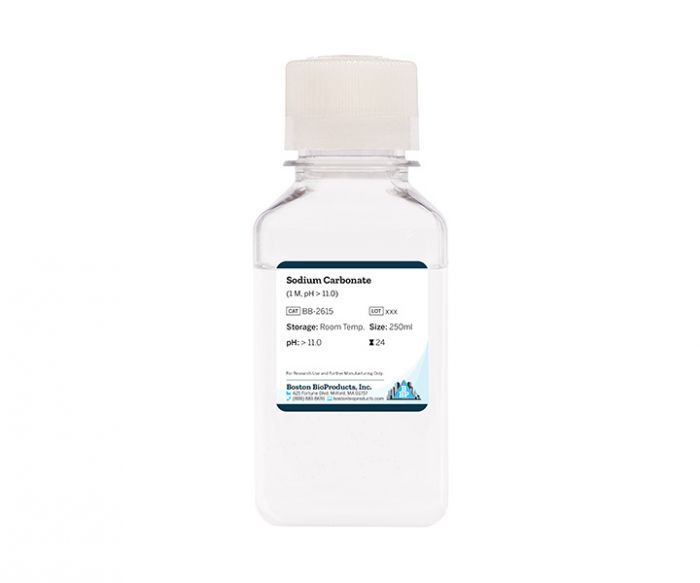6 Signs It's Time to Switch Your Buffer Supplier

When GMP demands rise, your supplier shouldn't be the weakest link.
Introduction: the hidden cost of staying put
Most teams don’t switch buffer suppliers on a whim. It’s inconvenient. It feels risky. And let’s be honest, if the product arrives and mostly works, it’s easy to justify staying the course. But what starts as a minor frustration—delayed lead times, vague documentation, a few off-spec batches—can quietly become a significant drain on timelines, compliance posture, and team capacity.
In regulated manufacturing environments, these issues rarely appear all at once. A single missed spec or late delivery might seem like an isolated incident—until the pattern becomes clear. By the time most companies switch suppliers, they’ve already spent months (or longer) managing avoidable inefficiencies.
This guide draws on real-world conversations and customer experiences to highlight the red flags that often go unnoticed or get downplayed for too long. If any of these signs sound familiar, it may be time to look at whether your buffer supplier is still meeting the needs of your process and your team.
#1. Your buffers fail internal testing, even if the CoA says otherwise
Customers often approach a new supplier after too many batches fail to meet internal quality checks, even though the supplier-provided CoA claims they're in spec. Whether it's conductivity, osmolality, or pH drift, unresolved variability at the buffer level can compromise process reproducibility and regulatory standing.
“It’s not enough for a buffer to meet specs on paper—it needs to hold up under in-house testing too. That alignment is what builds confidence in a GMP setting.”
—Vinny Chan,
Process Development Manager
Watch for:
- Discrepancies between supplier specs and your internal testing
- No offer to validate or test buffer specs before full production
- Rigid tolerance windows with no flexibility or support at scale
"There's real science behind buffer formulation. Especially in GMP, it takes experience and precision to ensure specs hold as you scale."
—Vinny Chan,
Process Development Manager
#2. Lead times keep slipping-and nobody's explaining why
One of the most common frustrations voiced by GMP customers is unreliable delivery timelines. A delay here and there is expected. But repeated schedule slips, with vague explanations or no heads-up, can bring entire workflows to a halt.
“Reliable lead times create space for teams to plan and deliver. When turnaround is measured in days or weeks—not months—it signals that a supplier understands the pace of GMP operations.”
—Neil Sharma,
General Manager
Watch for:
- Vague or shifting ETAs
- No proactive communication about sourcing or production delays
- Feeling forced to carry excess stock “just in case”
#3. Your supplier isn't transparent unless you push for it

In GMP settings, your team needs to know what's in your buffer, how it's made, and what to expect if changes occur. Some suppliers, however, treat this information as proprietary, charging for basic documentation or withholding critical sourcing details unless directly challenged.
"The best partners are open to early conversations, without friction. When feasibility discussions and pilot batches are part of the service, it signals a supplier invested in shared success."
—Karan Sharma,
Commercial Operations
Watch for:
- Reluctance to share raw material sources or formulation details
- Extra fees for pilot batches or data access
- A “don’t ask, don’t tell” posture toward transparency
Case study: choosing a buffer partner, not a paywall
When the team at Duke Human Vaccine Institute (DHVI) was preparing for GMP production, their buffer supplier asked them to sign a statement of work just to discuss feasibility. There was no clarity, no collaboration, just a bill.
Frustrated, they turned to Boston BioProducts. During the facility audit, Duke's technical lead began onboarding products on the spot. What started as a single buffer conversation became a full program transfer.
If you're being charged just to ask a question…
Some suppliers require a statement of work just to discuss feasibility or answer technical questions. That’s not transparency—it’s a barrier. If you're paying for clarity instead of outcomes, it’s worth asking whether you’re being treated like a partner or a transaction.
#4. Their facility can't keep up with your risk profile
Buffer cleanroom requirements aren't one-size-fits-all. While many vendors operate in ISO 8 or ISO 7 environments, more stringent applications may demand ISO 5 conditions, and a partner that can scale within those standards.
"Having access to ISO 5 cleanrooms when needed is a major asset. It allows teams to confidently scale or meet tighter regulatory expectations without switching partners down the line."
—Peter Milewski,
Senior Production Manager
Watch for:
- Limited facility access or delayed audit scheduling
- Unclear cleanroom classifications for key processes
- Difficulty aligning supplier capabilities with your internal quality systems
Quality systems matter as much as cleanroom classifications
A supplier might deliver a decent product and fair pricing, but if its quality systems can't support GMP-level oversight, it becomes a regulatory risk. Some teams switch vendors not because of failed buffers but because the paper trail behind them doesn't stand up under scrutiny.
#5. Their marketing is better than their manufacturing
Teams have reported switching vendors more than once after discovering that a supplier's shiny marketing didn't translate into scientific depth. Behind the glossy branding and modern facilities were junior staff unable to troubleshoot, verify specs, or answer basic formulation questions.
“Buffer formulation is a science—hitting specs at scale requires technical know-how, not just a recipe.”
—Vinny Chan,
Process Development Manager
Watch for:
- Little to no discussion of pilot batch feasibility or formulation science
- Support staff who rely on templated answers
- Difficulty aligning specs with real-world performance
#6. You're doing the work to keep the relationship alive
You shouldn’t have to manage your supplier. If your team constantly follows up, chases down documents, or deals with multiple points of contact for a single order, the cost is more than time—it’s trust.
"A true partner makes you feel like your project matters. When suppliers are proactive, responsive, and collaborative from day one, it sets a very different tone."
—Neil Sharma,
General Manager
Watch for:
- Lack of a dedicated project team
- Minimal or inconsistent communication
- Reactive rather than proactive support
Time to ask: is it still working?
From spec failures and shifting lead times to poor communication, limited customization, and surface-level expertise, these signs suggest your buffer supplier may be holding you back. In GMP environments, that’s more than an inconvenience—it’s a risk. Many teams wait too long to make a change, but when they do, they’re often looking for the same things: scientific depth, operational transparency, and support that feels like partnership, not troubleshooting.
What to look for in a buffer partner
Look for a supplier who can confidently check these boxes:
☐ Understands GMP requirements and formulates with compliance in mind
☐ Can hit tight specs consistently, even as volume scales
☐ Offers pilot batches to validate feasibility, without charging for the conversation
☐ Operates in cleanrooms that align with your product risk (ISO 8 to ISO 5)
☐ Welcomes audits and site visits without hesitation or delay
☐ Can support seamless RUO-to-GMP transitions with consistent formulation and documentation
☐ Communicates transparently about timelines, sourcing, and technical limitations
☐ Provides a dedicated project team (PM, technical, quality, and commercial)
☐ Brings real formulation expertise, not just off-the-shelf solutions
☐ Helps prevent problems, not just react to them
Want to know more?
Boston BioProducts was built with GMP-ready processes, deep formulation expertise, and a service model designed to meet the expectations of teams like yours. From custom buffers tailored to your exact specs to proactive support that keeps your projects moving, we check every box.
Related Products
Need something tailored to your exact specs? Explore our custom buffer manufacturing service.




